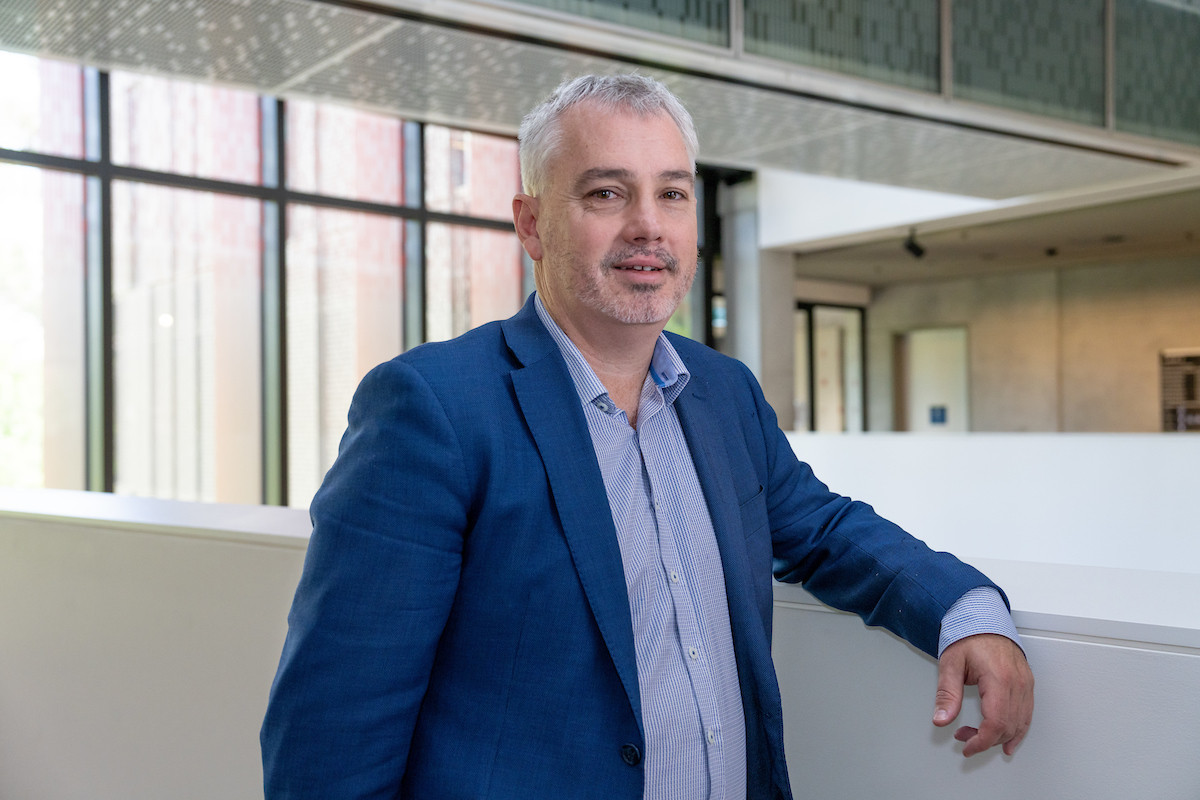
Why maths’ bad reputation doesn’t add up
It’s fascinating how many people think it’s fine to tell Associate Professor Adam Piggott they hate what he does for a living.
“When I tell people I’m a mathematician, there are folks who say, ‘I hate maths, I’ve always hated it,’” Associate Professor Piggott says. “I don’t really like this, but I know that there are very complicated reasons for why people feel this way.”
Associate Professor Piggott is a pure mathematician and the first-year coordinator for the ANU Mathematical Sciences Institute. He knows how mathematical ideas can transform our world, and wishes more people were in on the secret.
“I’m trying to solve a problem, which is helping people to understand what mathematics is, and what it’s good for,” he says.
There’s one particular fallacy that does a real number on him: that maths is boring.
Associate Professor Piggott partly blames the traditional education system for maths’ snooze-fest reputation and its inaccessibility for some people.
The maths curriculum in schools is often based on the idea that “if you want to accomplish this, you do these steps. And that becomes boring,” he says.

There’s a transformation that happens at university, he says. His early mathematics lecturers inspired Associate Professor Piggott by taking the class through the discovery process in an entertaining way, just like solving a mystery.
“The Sherlock Holmes stories would have been really dull if they just told you the nature of the crime and then who did it at the end,” says Associate Professor Piggott.
Associate Professor Piggott applies this to his own teaching and to public lectures. He’s motivated by the responses and diversity of audience members who engage when maths is presented well.
“When we teach mathematics, we're always trying to make those connections. We're trying to tell the stories,” he says. “And it's much more interesting.”
The justification for learning maths used to be all about arithmetic, but now that’s not so relevant.
“If you ask most of my colleagues − and me − to do some mental arithmetic in front of you, you wouldn't be impressed,” Associate Professor Piggott says. “It's just not the thing that mathematicians do.”
The Sherlock Holmes stories would have been really dull if they just told you the nature of the crime and then who did it at the end.”
The thing that mathematicians actually do is create mathematical models or apply them to various practical or theoretical scenarios.
Mathematical models are idealised representations of a problem, told through the language of mathematics, Associate Professor Piggott says. For example, you can model the stock market based on your knowledge of how it behaves, then make predictions using that model.
Sometimes you can have a really neat model, other times it is full of distracting data or is too simplified, and is harder to use. That’s where others may come in and critique your model, the maths behind it, and the assumptions you’ve made. It’s a creative and collaborative discipline.
“When you're doing mathematics you become really good at thinking in certain ways,” Associate Professor Piggott says. “It is a skill that makes mathematics universally useful.”
That’s why maths graduates get jobs in all sorts of places, he says. “Like the Bureau of Meteorology. Because predicting the weather needs incredibly sophisticated mathematical models.”
So what does Associate Professor Piggott think about the prevalent ideas that maths is intimidating, or for only certain types of people?
“It is a big thing, and there are stereotypes based on gender, based on race, even stereotypes based on coolness,” Associate Professor Piggott says. “They're all destructive and really unhelpful.”
He’s seen stereotypes such as “girls don’t do maths” being passed on through generations.
But turning around society’s deeply embedded feelings towards mathematics doesn’t happen overnight.
“Because you can't just change the mind of people in mathematics classrooms. You have to change the mind of their parents too,” Associate Professor Piggott says.
“Very clever people in education have been trying to fix this for years,” he says. “It takes time.”
It is true that maths won’t be everyone’s cup of tea, and that’s okay, Associate Professor Piggott says. But he wants to give people the chance to at least understand what maths is before they make up their minds about it.
Arm yourself with a universal skillset and study a Bachelor of Mathematical Science at ANU.
